Published Dec 24, 2024 | 9:00 AM ⚊ Updated Jan 04, 2025 | 9:38 AM
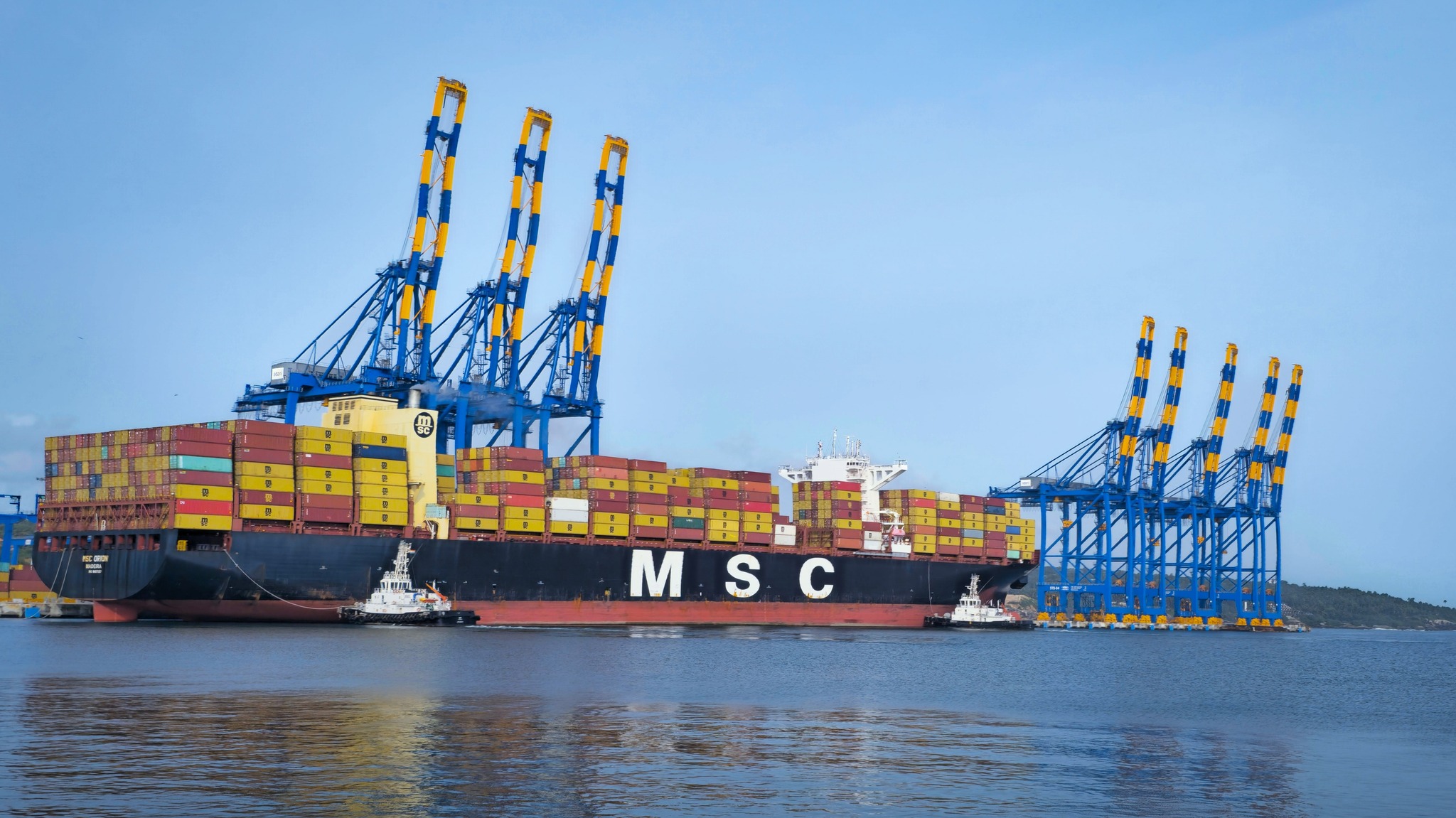
Vizhinjam International Seaport Thiruvananthapuram
The Vizhinjam International Seaport in Thiruvananthapuram, touted as a game-changer in India’s maritime sector and the country’s first deep-water container transshipment hub, is steering into uncharted waters of local employment demands.
Fully owned by the Kerala government, the seaport is operated by Adani Group under a contract signed in 2015 for 40 years.
While concerns brew over Adani Vizhinjam Port Private Limited (AVPPL), the concessionaire, allegedly overlooking locals for supervisory roles, authorities argue they are laying the groundwork to equip the local workforce with the necessary qualifications for these coveted posts.
With Phase 1 set for grand commissioning in January 2025 and full-scale operations anticipated by 2028, ensuring adequate representation of the local community isn’t just a matter of corporate social responsibility — it’s a critical step towards uplifting the region’s economic landscape.
The seaport, developed under the Public Private Partnership (PPP) model, is poised to transform India’s global trade position. Strategically located near key international shipping routes and with a natural deep draft of 18 m, it offers unmatched logistical advantages.
By redirecting Indian cargo from Colombo, Salalah, and Singapore, Vizhinjam is expected to slash transshipment costs, reduce foreign exchange outflows, and enhance the cost competitiveness of exports and imports.
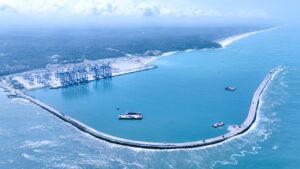
Vizhinjam International Seaport Thiruvananthapuram
This efficiency will not only attract investments and establish Vizhinjam as a global trade hub but also drive regional industrial growth.
Port-related industries, including logistics, warehousing, shipbuilding, and marine services, are expected to generate significant employment and spur economic development. The ripple effects, it is projected, will boost ancillary sectors, foster local entrepreneurship, and fuel regional prosperity, positioning Vizhinjam as a cornerstone of India’s self-reliant and thriving maritime economy.
Since the beginning of the Vizhinjam project, the state government and the concessionaire have consistently assured the local community that they will be given priority in employment opportunities generated by the port’s construction and subsequent operations.
These assurances were aimed at addressing the concerns of the local population about displacement and the socioeconomic impact of the project.
Both parties had reiterated their commitment to providing jobs in construction, logistics, and related sectors, promising to integrate locals into the port’s workforce wherever possible.
Recently, on 8 October, Kerala Ports Minister VN Vasavan reassured the state Assembly that the seaport would prioritise job opportunities for locals, both during its construction phase and operational period.
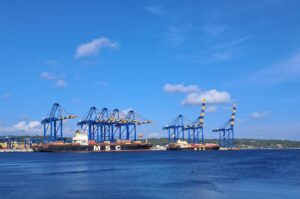
Vizhinjam Seaport
The minister emphasised the state’s commitment to ensuring the participation of the local workforce and outlined a multi-pronged approach to enhance employability in the region.
According to the minister, the port concessionaire, AVPPL, is already considering eligible locals for direct and indirect employment opportunities during the construction phase.
Once the port becomes operational, a surge in job openings is anticipated, along with significant economic growth stemming from the establishment of various port-related industries and allied enterprises in the vicinity.
To equip the local population with the necessary skills, a specialised training centre under the Additional Skill Acquisition Programme (ASAP) has been set up at Kottapuram on land provided by Vizhinjam International Seaport Limited (VISL), a special purpose vehicle of the state government to implement the seaport project.

ASAP – CSP
The centre offers a variety of courses, including those tailored specifically for port-related professions.
“17 candidates from the first batch of the Truck Operator course and 24 candidates from the Lasher training programme have already secured employment at the port,” the minister announced. Furthermore, the next batch of the Truck Operator course has been notified, and classes are set to commence soon, he said then.
ASAP’s training portfolio has expanded beyond port-related courses to include General Duty Assistant (Nursing Assistant) and Domestic Data Entry Operator programmes. Further, plans are underway to introduce additional port-focused courses to meet the growing demand for skilled professionals, he stated.
Although the exact details of local employment at the Vizhinjam seaport remain unclear — especially as queries from South First to AVPPL regarding the status of local hires, the sectors employing them, and measures to equip them for opportunities went unanswered — a 2018 document offers some insight.
The Half-Yearly Compliance Report (HYCR) on Environmental and CRZ Clearance conditions revealed that 190 Keralites, including 107 locals, were engaged in various construction activities at the time. To ensure this, contractors were monitored through biweekly meetings to track the inclusion of locals in the workforce. Locals were employed in diverse roles ranging from construction and security to office assistance and even supervisory positions.
Further details from another HYCR report, covering October 2021 to March 2022, highlighted that livelihood losses would be addressed through compensation or employment opportunities within the port premises.
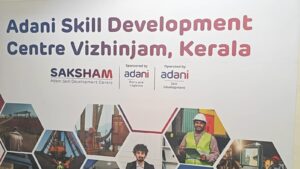
Adani’s Saksham at ASAP CSP, Vizhinjam
The authorities also point out that by joining hands with ASAP’s Community Skill Park at Vizhinjam, Adani Saksham —a skill development initiative by Adani Foundation — is offering various courses towards self-employment, including nursing assistants, data entry operators, beauty therapists, hair stylists, self-employed tailors and others.
Some of the port-related courses offered by them were Internal Transfer Vehicle (ITV) truck Operator, Lasher and Diploma in Warehouse Management.
The CSP is also gearing up to offer Post Graduate Diploma in Port Operation and Terminal Management where eligible candidates will have the opportunity to work in the Vizhinjam seaport.

Nemi C
ASAP Vizhinjam CSP executive Nemi C told South First, “Of the 16 CSPs under ASAP, the one at Vizhinjam is the latest. Our operating partner is Adani Skills Development Corporation (ASDC). The aim is to provide employability skills courses and provide them with assistance and placement. Vizhinjam seaport-related courses, training and placements are provided by the ASDC. Currently, they provide training to ITV and lasher applicants and provide them with placements.”
Meanwhile, the issue of local employment at Vizhinjam seaport has sparked fresh concerns, with community leaders urging for better mechanisms to ensure that residents benefit from job opportunities at the port.
Paniadima J, councillor of Kottappuram ward in Thiruvananthapuram Corporation, emphasised the need for a systematic approach to track and enhance the employability of local candidates. “It has been observed that the concessionaire has employed a significant number of people from other states while only a handful of locals have secured jobs,” said Paniadima to South First.
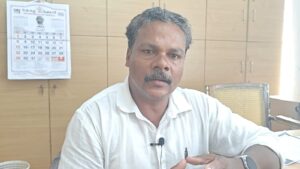
Paniadima J
Highlighting key concerns, he added, “First, the fully automated nature of Vizhinjam port will reduce manpower requirements. Second, the short-term courses provided by ASAP CSP Vizhinjam should be geared towards improving local employment prospects. Third, a proper mechanism is needed to review the biodata of local job aspirants, assess their skills and qualifications, and offer corrective measures to improve their chances.”
Monsignor Nicholas T of the Our Lady of Good Voyage Church Vizhinjam echoed similar sentiments. He revealed that the church had previously demanded that the concessionaire ensure at least one person from every immediately affected family gets employed at the port.
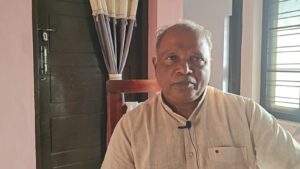
Monsignor Nicholas T
“While they initially agreed, the statistics after the completion of the first phase tell a different story. Skilled labourers were prioritised, and many in the fisherfolk community lack the required training or qualifications. Efforts to address this are underway, and we hope for positive changes,” Nicholas told South First.
Dominic Vincent of Janapaksham, a local advocacy group supporting the seaport, criticised the nature of the training programs being offered.

Dominic Vincent
“Most courses provided by Adani are geared towards self-employment rather than port-specific roles. Marine or port-related courses were introduced only recently, and even those are just two or four-month programs. Whether such courses will significantly boost employability remains to be seen. More professional courses should have been introduced earlier to adequately prepare locals,” he told South First.
Meanwhile, a local employee at the port, speaking on the condition of anonymity, pointed to a different angle.
“One reason the concessionaire hesitates to employ locals may be the fear of labour consolidation or unionism, which could lead to challenges in labour management,” the source suggested.
It is being pointed out that while the port holds immense potential for transforming the local economy, a more transparent, inclusive, and structured approach to local employment is essential. This will address the grievances of the affected communities and ensure the long-term success of the port as a cornerstone of Kerala’s economic future.
(Edited by Muhammed Fazil.)

